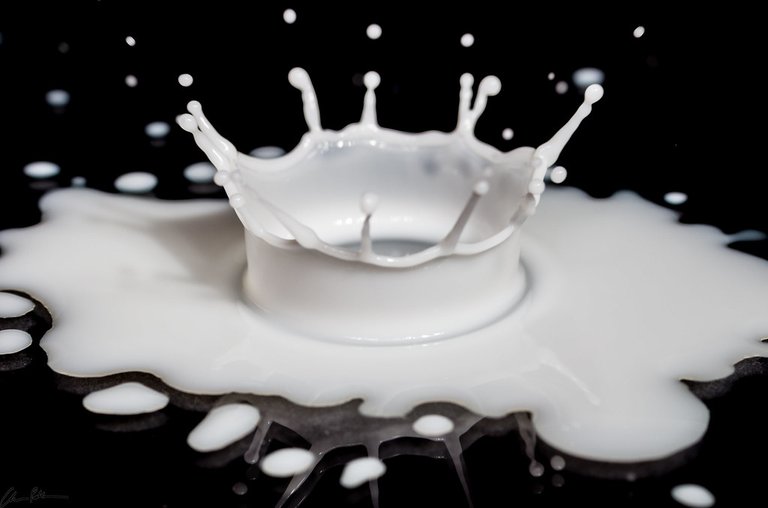Exploring the Complex Relationship Between Milk and Bone Health
Three glasses of milk a day gives you strong bones and prevents Osteoporosis. Some food companies even call it the beauty secret, that it will make the skin beautiful and soft and that's where the word "Skin like Milk" comes from but then, a lot of scientists still talk against milk making it look like we are making the wrong choice drinking milk when we aren't making any wrong choices or are we?
The topic of milk is very controversial and honestly, people can eat whatever they like but it is important to understand the science of whatever is going into your body and not let mainstream media define what goes into your body because they are doing their adverts to make sales, so you should do your due diligence to make your research so you can live healthy.

While we cannot say for sure when people started to milk cows and when we began drinking them, archeologist have been able to find artifact from the the Neolithic era (period when humans were transitioning from hunting and gathering to farming and rearing), and they saw that these artifacts had residues of milk fat, although there are no much evidence to show that they took milk regularly. Why they began drinking the animal milks are not known to us. Although according to the Norse mythology, and Greek mythology, milk from animals had their relationship with the creation of the earth.
Realistically, cow's milk has been associated with strong bones thanks to the high level of calcium and vitamin D and it is good for our health. A 2 year randomized controlled study of 167 men age above 50 supplemented with calcium vitamin D3 fortified milk providing additional 1000mg of Calcium and 800 IU of vitamin D3 per day showed results of stopping or slowing bone loss, and suppressing PTH, but then another prospective study over 22 years of follow-up in more than 96000 white postmenopaual women from the Nurses' Health Study and Men aged 50 years and Older from Health professional Follow-up study showed an increased risk of fracture in men who drank more milk during adolescence.
Before you begin to throw away your milks in your refrigerator, another study that analyzed 72,337 postmenopausal women for 18 years didn't find any positive or negative relationship between bone health and milk. If you keep researching, you will see lots of studies that find positive relationships, negative relationships and even those that do not see any correlation between the two.

We cannot directly say that drinking milk will lead to strong bone or lead to brittle bones, because it is not a causation. This is because milk isn't the only variable to consider as there are a lot of variables that can affect a person's bone positively or negatively.
There have been ups and downs on whether milk is good, bad, or have no correlation bone health. In fact, Doctors have been questioning the correlation of milk ingestion and Asthma as people who go dairy free are able to get rid of their asthma. In studies like "Effect of Milk ingestion on Pulmonary Function in Healthy and Asthmatic Subjects", "The Effect of Exclusion of Dietary Egg and Milk in the management of Asthmatic children: a pilot study" and more, concerns have been raised on milk and its correlation with asthma. Although some councils have ruled out these studies on the grounds that there are no enough scientific evidence to back the claims.
While I am not going to be telling you to stop taking milk or continue taking milk, it is good we understand that different animal produce milk with different contents for their own purpose so as to make their infants grow and when they are weened, the mothers stop giving them milk. Also no other specie drinks milk from another specie except humans. We are the only specie that take milk as adults, and drink that from other species (except for pets that are given milk from their owners as adults).
When we take milk as adults, it naturally occurring disaccharide sugar known as lactose require lactase to break it into glucose and galactose but we do not have this enzyme as adults, we only have it as infants because it is required to breakdown and digest our mother's milk and when its work is done, it disappears. This is why over 65% to 75% of the world's population are lactose intolerant.
Instead of having lactose intolerance issues when taking milk, other options like tofu, green vegetables, almond, soy, hemp, rice milk, and many more and the body can make vitamin D from sunlight, as well as from fishes like tuna. Calcium and vitamin D supplements are also available for use for people with lower calcium. With this said, I cannot say that milk is good or bad for humans since there are a lot of conflicting studies but something is certain and that is the fact that milk is not a necessary part of our diet as adult since we can live without it.
Post Reference
https://sites.pitt.edu/~dash/creation.html
https://www.nddb.coop/ccnddb/milk-and-mythology
https://www.smithsonianmag.com/smart-news
https://www.history.com/topics/pre-history/neolithic-revolution
https://pubmed.ncbi.nlm.nih.gov/16491287/
https://pubmed.ncbi.nlm.nih.gov/24247817/
https://www.ncbi.nlm.nih.gov/pmc/articles/PMC4703621/
https://pubmed.ncbi.nlm.nih.gov/1938769/
https://pubmed.ncbi.nlm.nih.gov/15067979/
https://www.researchgate.net/publication/8633589
https://emedicine.medscape.com/article/187249-overview?form=fpf
https://medlineplus.gov/genetics/condition/lactose-intolerance/
Image Reference
Image 1 || flickr || Milk Drop
Image 2 || freerangestock || A glass of soy milk alongside a bowl of soybeans
Fascinating stuff!
Thinking about the science of food choices is critical in cases where such contentious topics as milk and bone health are involved.
I appreciate your emphasis on the difficulty of this.
Thanks for your contribution to the STEMsocial community. Feel free to join us on discord to get to know the rest of us!
Please consider delegating to the @stemsocial account (85% of the curation rewards are returned).
Thanks for including @stemsocial as a beneficiary, which gives you stronger support.